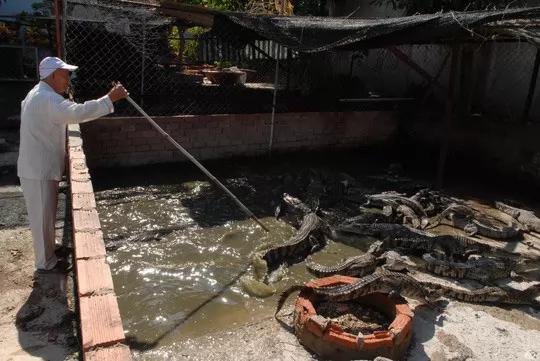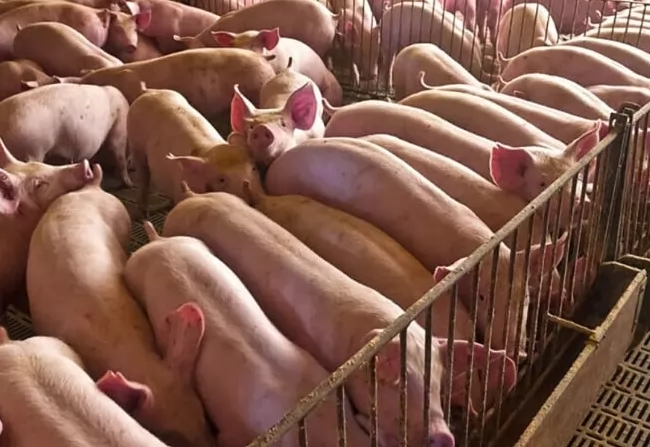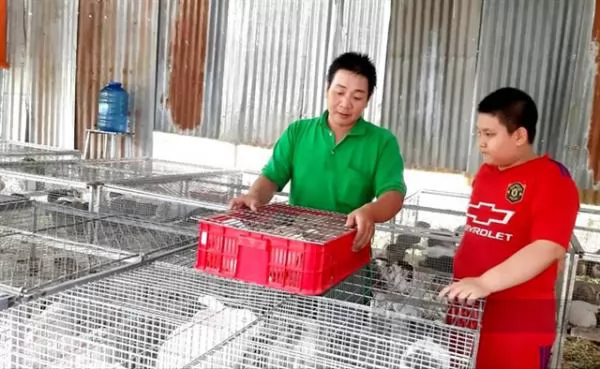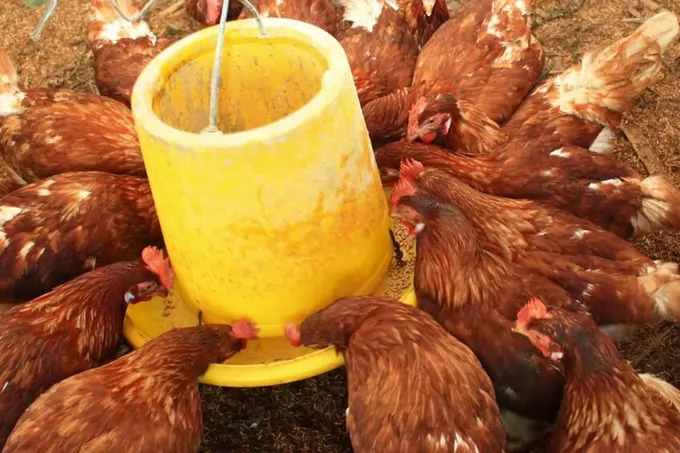Crocodile breeders seek protection from foreign traders

Crocodile breeders face many difficulties due to falling prices. They are urged to link up to better protect each other. — Photo nld.com.vn
Viet Nam News | HCM CITY — Crocodile farmers and enterprises have suggested establishing a crocodile breeding and production association to strengthen links between them, so they can protect the market against being manipulated by foreign traders.
The crocodile breeding industry is now relying heavily on Chinese consumption, which leads to price instability when the relationship between individual breeders and between breeders and enterprises is lacking.
These were the most concerning issues discussed by participants at a conference on improving the competitiveness of crocodile products, held by the municipal Department of Agriculture and Rural Development early this week.
Tôn Thất Hưng, Deputy Director of Hoa Cà Crocodile Ltd Co, said the market had developed spontaneously, without planning or guidance. The lack of investment in processing technology means most products sold are raw materials.
He attributed the crocodile breeders’ inability to decide on prices to the lack of co-operation in production among them.
Recently, foreign traders, mainly Chinese people, visited small crocodile farms directly to buy crocodiles and crocodile leather. They no longer need Vietnamese intermediaries, so they were able to manipulate the prices, Hưng said.
In 2014, crocodile prices rose to a record high of VNĐ230,000 (US$10.3) per kilogramme, leading farms to rush to increase the number of crocodiles they produced. But now, prices have dropped to VNĐ60,000-70,000 per kilogramme, causing losses for many households.
The affected companies have asked authorities to adopt measures to prevent price manipulation by Chinese traders, which would affect economic security.
As reported by the departments of Agriculture and Rural Development of 22 southern provinces, there are some 2,700 crocodile farms in the region, including up to 2,500 small-scale farms, which are home to some 50-100 crocodiles.
According to Hưng, if the region receives proper investment in production technology and breeding stock research, it will become the crocodile "basket" of the world, bringing great benefits to the farmers and the country.
Ngô Ngọc Ánh, Director of the Ngô Võ Ltd Co, a business that has experience in exporting crocodiles to European markets, said the Russian market has enormous export potential, but there are quite strict regulations on veterinary procedures, packing and packaging.
If businesses do not familiarise themselves with the requirements, it will be difficult for them to access the market, Ánh said.
He said, currently, many Vietnamese enterprises producing and processing clothing, shoes and purses have to import crocodile skin. Meanwhile, domestic resources are sizeable but have not been fully employed.
Therefore, Ánh suggested the HCM City People’s Committee and the municipal Department of Agriculture and Rural Development work with the garment processing enterprises to promote the consumption of local raw materials.
In the context of deeper integration, Trần Văn Nga, Deputy Director of the Tồn Phát Crocodile Breeding and Business Ltd Co, said it is necessary to create a plan and develop a strategy to shape the Vietnamese crocodile brand.
"Without strategic branding and intellectual property registration for the freshwater crocodile business in the country, domestic products will be affected and subjected to fierce competition when the time to realise commitments under free trade agreements draws nearer," said Nga.
Due to commitments to tax reduction in the agreements, particularly the Agreement on ASEAN-China Goods Trade, which is already in force, crocodile products from Thailand, Cambodia and China will flow into Việt Nam.
Nga said local crocodile businesses must have divisions responsible for marketing their products to the world. In addition, they are advised to diversify their product lines and markets to avoid continuing their complete dependence on the Chinese market.
A representative of HCM City’s agriculture department pledged to coordinate with the city’s Trade and Investment Promotion Centre to seek new export markets for crocodile products and to propose measures to control trafficking by Chinese traders. — VNS
Maybe you are interested

ASF Philippines: How traders influence pork prices amid outbreaks
As the fight against ASF continues, pig traders in the Philippines are putting salt in the wound. They are driving down farm gate prices by spreading misinformation about the severity of ASF.

Hopping on the trend: Tiền Giang farmer finds fortune in rabbits
TIỀN GIANG — Đặng Hồng Phúc was one of the first large-scale rabbit breeders in Chợ Gạo District, in the Mekong Delta province of Tiền Giang, turning to them after failing to make ends meet in raising other livestock.

Further pause in introduction of new standards for laying hens
RSPCA Assured has further extended its current pause on the introduction of new standards for laying hens, pausing its rollout for 9 months.





